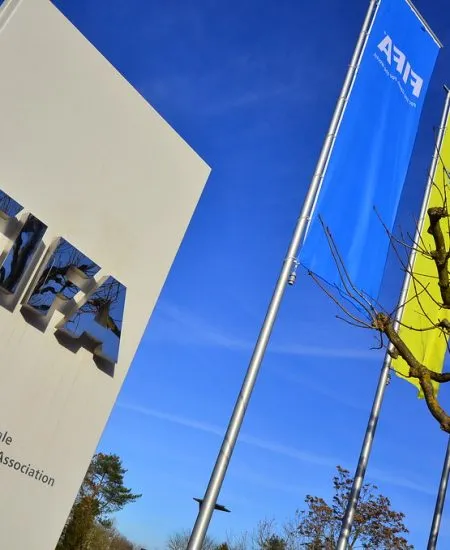Last week, Belgian national team coach Rudi Garcia surprised many by selecting 20-year-old Diego Moreira — currently playing for Strasbourg — for the upcoming World Cup qualifiers.
Although Moreira initially played two friendly matches for Belgium’s U15 team, he went on to play for almost all of Portugal’s youth teams, only to now return to the Belgian Red Devils’ first team.
Below, we break down this ‘change of association’ and explain the difference with the case of Mile Svilar who, unlike Diego Moreira, was unable to change his sporting nationality to Belgian last year.
What do the FIFA rules say about changing sporting nationality?
The answer lies in FIFA’s Regulations Governing the Application of the Statutes, particularly Chapter IV, Article 10, which outlines the rules regarding the change of association.
Players who have already played an official match at youth or senior level for a particular association may, under strict conditions, formally apply to FIFA for a change of association. If a player has dual nationality and has not yet played an official match for a particular association, he is therefore still free to choose without having to apply for a ‘change of association’.
It is this distinction that proved crucial in both the Moreira and Svilar cases, although the outcome for the two players was completely different.
Diego Moreira case
In Moreira’s case, the key detail is that he never played an official match for Belgium at the youth level. Friendly matches, like those he played with the U15 team, do not count as official appearances. Therefore, Moreira was eligible to represent Portugal at youth levels from 2019 onwards, without having to formally change association at all.
Because Moreira, despite having played for the youth teams of two different countries, has never had to apply for an official change of association, the current switch from Portugal to Belgium is his first.
The various situations in which a player may apply for a first change of association are listed in detail in the aforementioned Article 10.
Now, having not played an official senior match for Portugal and holding Belgian nationality since his first official appearance for Portugal’s youth teams, Moreira falls under one of these predefined situations for requesting a first change of association to Belgium.
What is the difference with Mile Svilar?
Last year, the then Belgian national coach Dominico Tedesco tried to select AS Roma goalkeeper Mile Svilar for the Red Devils, but shortly afterwards it was announced that Svilar could not (re)switch to the Belgian association.
Mile Svilar, with dual Belgian and Serbian nationality, also began his career in the Belgian youth teams, where, unlike Moreiro, he did play in official matches, including the 2016 UEFA European Under-17 Championship in Azerbaijan.
However, in 2021, Mile Svilar decided to chang his sporting nationality to Serbian. These aforementioned official matches for Belgian youth teams meant that Svilar already had to undergo a first change of association at this point.
Svilar ultimately played once for the Serbian national team in a friendly match against Qatar. Though that match wasn’t official, it nonetheless counted when he later sought to return to the Belgian national team.
Why?
Because unlike Moreira, Svilar had already undergone his one permitted change of association —moving from Belgium to Serbia 2021. FIFA’s rules state that a second change of association is only allowed if a player:
1. Wishes to return to their original association, and
2. Has not played any match (official or unofficial) for the second association.
Since Svilar had played — even just a friendly — for Serbia’s senior team, he does not meet the (even stricter) conditions for a second change of association and therefore is permanently tied to Serbia under current FIFA rules.
Conclusion
These contrasting cases highlight how crucial it is for players to understand the implications of every appearance and decision regarding national team representation. A single match can define a player’s international future.
At PowerPlay, we guide players through the legal complexities of international eligibility from an early stage and ensure that they always make a well-considered choice in line with the further course of their career.
